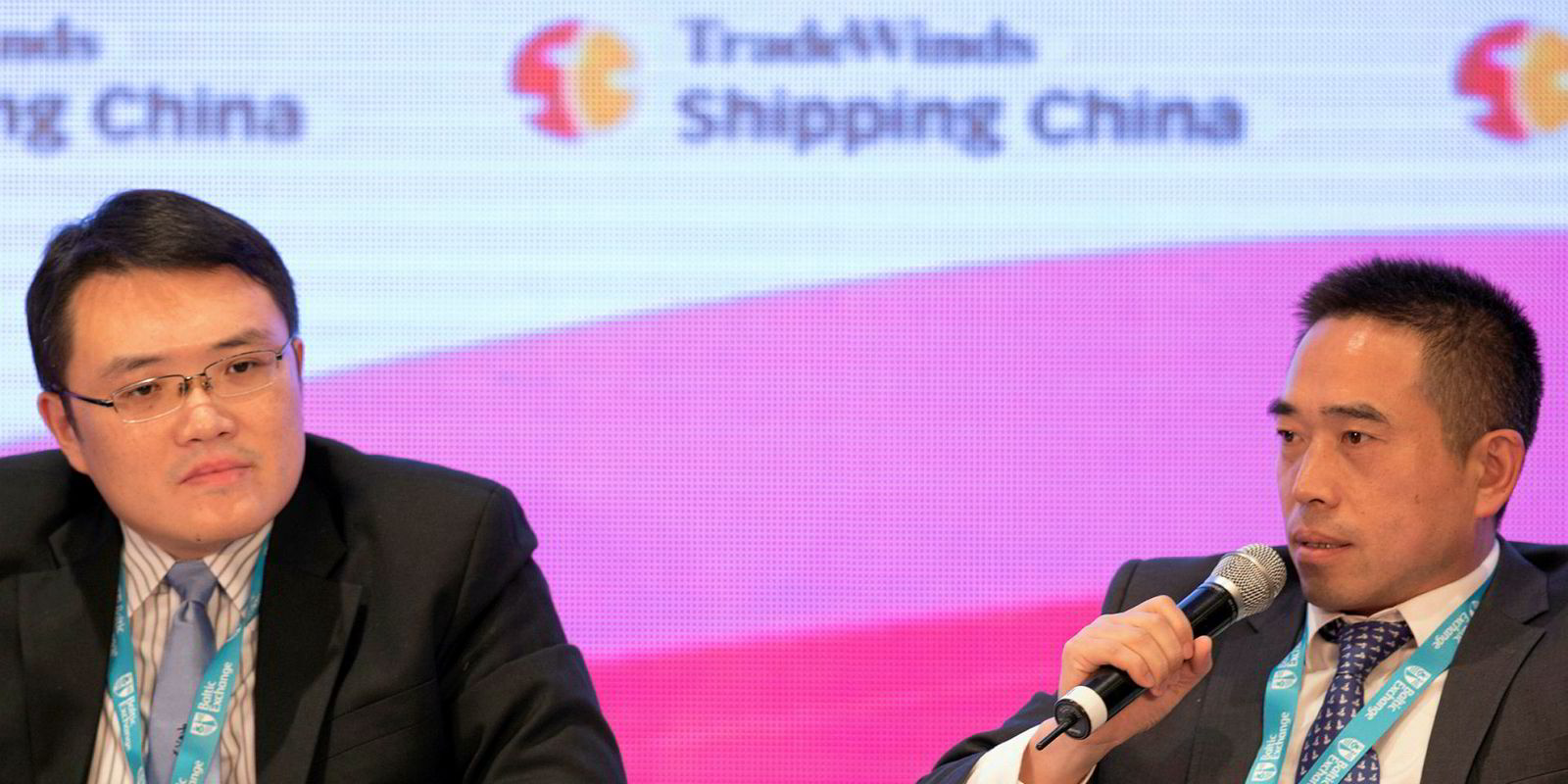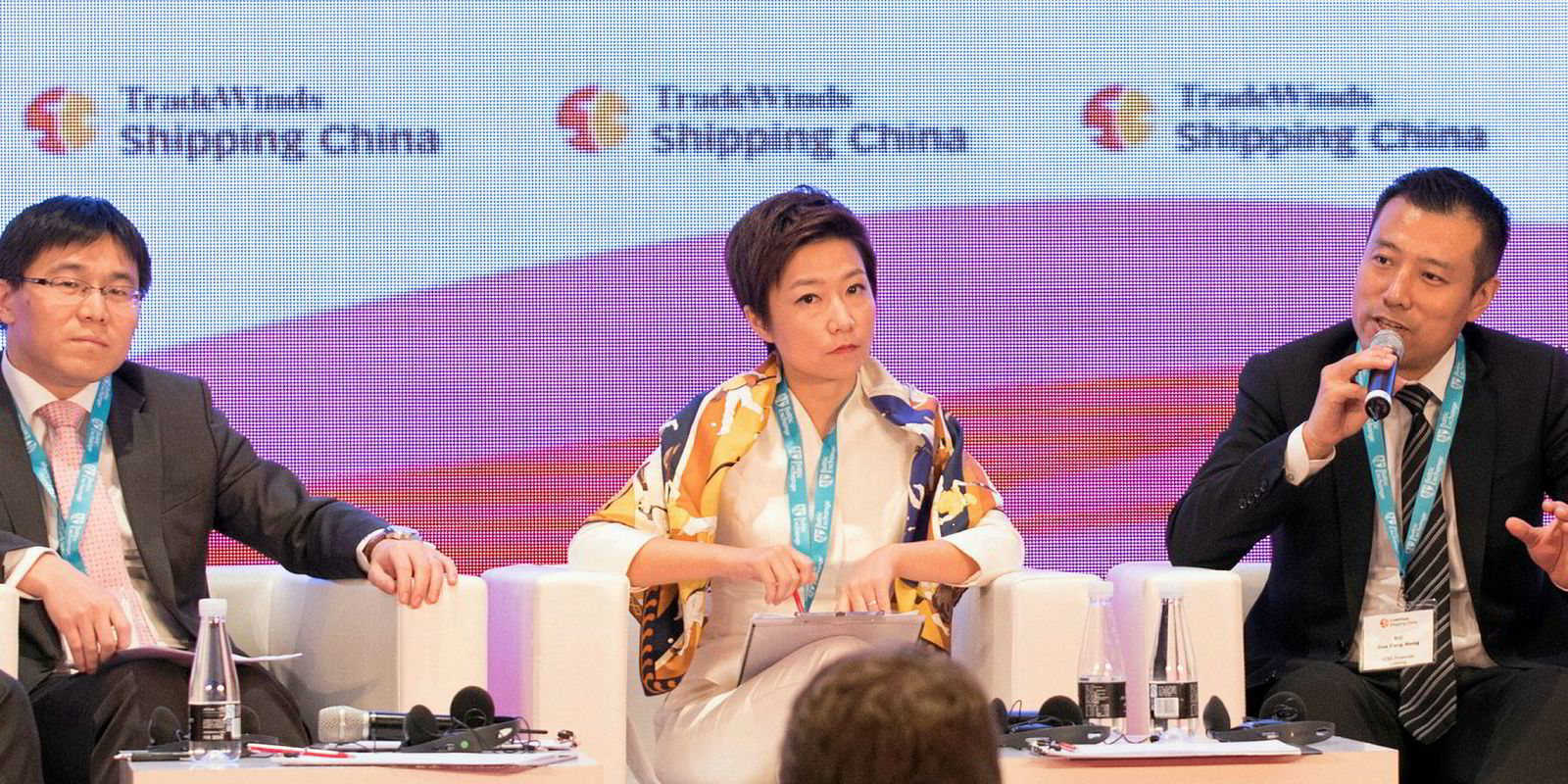Overcapacity in shipping markets always brings a round of finger-pointing, and ship finance institutions are a perennial butt of blame.
As some shipping markets show signs of recovery, could China’s financial leasing sector be the next culprit as the country seeks foreign investment targets?
Gao Zefeng of the Export-Import Bank of China (China Exim Bank) believes in prevention. Financial leasing houses, increasingly eager to offer a variety of creative financial models, should not stray too far from finance leasing as their core business, he argues.
Operating leases should be capped at 40% of the shipping portfolio, and speculative deals — based on market outlook rather than firm contract backing — at no more than 5%, says Gao, vice general manager in China Exim Bank’s large shipping operation.
His perspective is not that of a competitor of the leasing houses, but a collaborator in funding their leasing deals. And he stresses that he is not calling for hard regulatory ceilings, but for self-discipline.
However, lessors promise they have already learned their lesson.
“I think the 5% figure is pretty reasonable,” ICBC Leasing shipping executive Bill Guo (Guo Fangmeng) told TradeWinds. “That kind of speculative ordering was happening a few years ago but the financial leasing companies have become more cautious now.”
Some leasing houses have already had their fingers burnt, the most difficult case being Beijing’s Minsheng Financial Leasing (MSFL). After ordering a series of eco-design ultramaxes, MSFL got stuck holding 12 of them, which it now must run from its own internal chartering desk. Competitors say the MSFL experience has been a deterrent to the whole industry.

Guo says the handful of supramaxes that ICBC Leasing’s chartering desk handles are all repossessed, none the result of speculative ordering. The same is true of a group of capesizes that the company took on commercial management when they were repossessed from failed Wenzhou Shipping.
Unlike crosstown rival MSFL, which charters out its ultramaxes basically on one to three-year time charters, ICBC Leasing’s chartering operation is all spot. That may make the ships easier to dispose of — and like others in the space, it is underscoring these days that it does not want to go into competition with shipowners.
In Shanghai, ICBC’s biggest competitor, Bank of Communications Financial Leasing (BoCom FL), agrees that the gathering recovery in dry bulk is not going to tempt lessors to overwhelm yards with speculative orders.
The number of speculative orders by all the leasing houses has come to only about 30 ships, according to Fang Xiuzhi, BoCom FL’s head of shipping. The $16bn of investment in shipping by Chinese leasing houses is less than 10% of the global total, and about a third of that Chinese figure is secondhand sale and leaseback deals, rather than newbuilding orders.
“We prefer projects with long-term contracts, stable cargo and stable cash flow,” Fang said. “We can support owners and give them financial approvals to support them in their negotiations for long-term cargo contracts. But speculative orders will find it difficult to get financing from Chinese leasing companies.”
Others point out that institutional pressures on state-owned financiers tend to push money into the market. “This is one of the biggest challenges for Chinese leasing companies — that as state-owned companies they are required to show progress every year,” said Zhao Shen, head of credit, risk and legal management at CSIC Leasing, the finance arm of China Shipbuilding Industry Corp.
But Fang believes that pressure can be resisted. “Our management supports us when we propose investments that make sense, but we are under no pressure to increase our portfolio,” he said.
BoCom has charted a changing investment course and dropped out of sectors for years at a time based on supply and demand. Once aggressive in large containership finance, it has not done a boxship deal since 2014. From 2013 to 2016, Fang says it did no dry bulk deals because of oversupply. Its most conspicuous recent deals have been in tankers, notably a large series of MR2, LR2 and suezmax newbuildings for long-term charter to Trafigura, but it avoids VLCCs as it considers them too risky and has no offshore portfolio.
Fang says BoCom is the biggest financial leasing company in shipping, as opposed to shipping and offshore, where ICBC Leasing remains number one. “We have never failed on a signed letter of intention and we have had no problem with nonperformance,” he said.



